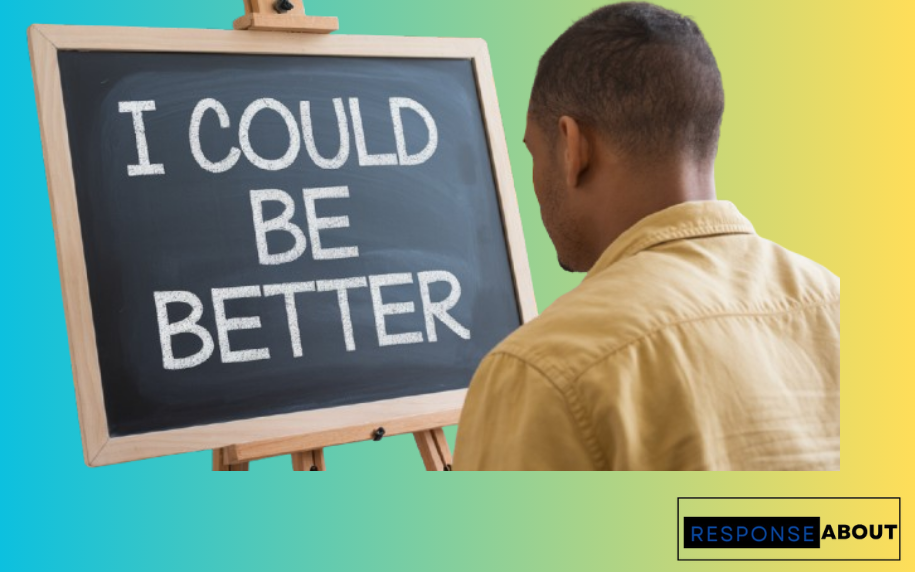We’ve all been there – feeling a bit down or going through a tough time, and when someone asks how we’re doing, the automatic response is “I could be better.” It’s a simple phrase that can carry a lot of weight, expressing a range of emotions from mild discomfort to deep struggle.
Sometimes, we just need to let those words out, acknowledging that things aren’t perfect without going into too much detail. Other times, we’re silently hoping for a caring response that can lift our spirits or provide a listening ear.
As friends, family members, or even colleagues, how we respond to “I could be better” can make a significant difference. The right words can offer comfort, validation, and a sense of support, while the wrong response might inadvertently dismiss or minimize someone’s feelings.
In this article, we’ll explore 30 Best Responses to I Could Be Better, designed to show understanding, offer encouragement, and create a space for open communication.
Best Responses to I Could Be Better
1. “I’m Here to Listen if You Need an Ear”
This response acknowledges that you may be going through a difficult situation and offers a non-judgmental space for you to share your thoughts and feelings.
It’s a simple yet powerful way to show that you care and are willing to lend a listening ear without prying or making assumptions.
By keeping the invitation open-ended, it allows you to decide how much or how little you want to share.
2. “I’m Sorry You’re Having a Tough Time”
This response expresses empathy and validates the challenges you’re facing. It acknowledges that you’re going through a difficult period without minimizing or dismissing your feelings.
The use of “I’m sorry” conveys genuine concern and care for your well-being, creating a sense of understanding and support.
3. “How Can I Support You Right Now?”
This response demonstrates a willingness to actively help and provide support during your time of need. It recognizes that you may need assistance or guidance and invites you to share how the other person can best support you in that moment.
By keeping the question open-ended, it allows you to specify the kind of support you need, whether it’s a listening ear, practical help, or simply someone to be present.
4. “You’ve Been Through Tough Times Before, and You’ve Gotten Through Them”
This response aims to instill hope and remind you of your resilience. It acknowledges that you’ve faced difficulties in the past and successfully navigated through them. By highlighting your strength and ability to overcome challenges, this response encourages you to tap into your inner reserves and have faith in your capacity to get through the current situation as well.
5. “I Care About You, and I’m Here for You”
This response expresses genuine care and concern for your well-being. It’s a heartfelt affirmation that you are valued and supported and that the other person is present and available to help you through this difficult time.
The use of “I care about you” creates a sense of emotional connection and reminds you that you’re not alone in your struggles.
6. “Is There Anything I Can Do to Help Make Things a Little Easier?”
This response demonstrates a willingness to provide practical assistance or support. It acknowledges that you may be facing challenges and offers to help alleviate some of the burden or make the situation more manageable.
By asking specifically about how they can help, the other person is showing that they’re ready and willing to take action in whatever way might be most beneficial for you.
7. “You’re Doing the Best You Can, and That’s Enough”
This response offers validation and reassurance during a difficult time. It acknowledges that you are putting forth your best efforts, even if the circumstances are challenging. By stating that your best is enough, this response removes any unrealistic expectations or pressure to be perfect and instead encourages you to be kind and compassionate towards yourself.
8. “This Too Shall Pass – Better Days Are Ahead”
This response aims to provide hope and perspective by reminding you that challenges, no matter how difficult, are temporary. It acknowledges that you’re going through a tough time but reassures you that this period won’t last forever.
By highlighting the prospect of better days ahead, this response encourages you to look beyond the present struggles and focus on the light at the end of the tunnel.
9. “I’m Proud of You for Being Open About How You’re Feeling”
This response celebrates your vulnerability and courage in expressing your emotions. It acknowledges that opening up about one’s struggles can be challenging, and it validates your willingness to share your feelings openly.
By stating their pride, the other person is creating a safe and supportive environment for you to continue being authentic and honest about your experiences.
10. “I Understand – We All Have Ups and Downs”
This response normalizes the experience of going through difficult times and reassures you that your struggles are not unique or abnormal. It acknowledges that everyone faces challenges and periods of difficulty and that these “ups and downs” are a natural part of life.
By stating their understanding, the other person is validating your feelings and creating a sense of shared human experience.
11. “Let’s Do Something Together That Brings You Joy”
This response aims to provide a positive distraction or mood-booster during a difficult time. It acknowledges that you may be struggling but suggests engaging in an activity or experience that could bring you happiness or joy.
By proposing doing something together, the other person is not only offering a reprieve from your troubles but also demonstrating their willingness to be present and supportive.
12. “You’re Stronger Than You Think”
This response is designed to instill confidence and remind you of your inner strength and resilience. It acknowledges that you may be doubting your abilities or feeling overwhelmed, but it encourages you to recognize the power and fortitude that lies within you.
By stating that you’re stronger than you think, the other person is highlighting your potential and reminding you of the reserves you have yet to tap into.
13. “I Believe in You and Your Ability to Get Through This”
This response expresses unwavering faith and confidence in your capabilities. It acknowledges that you’re facing a challenge, but it reassures you that the other person believes in your ability to persevere and overcome this difficult situation.
By stating their belief in you, the other person is providing encouragement and support, reminding you of your own strength and potential.
14. “Let’s Talk About Something Positive for a Moment”
This response acknowledges that you may be going through a difficult time, but it also recognizes the importance of finding moments of positivity and joy.
By suggesting a shift in focus to more uplifting topics, the other person is offering a temporary reprieve from your struggles and an opportunity to recharge your emotional batteries. This approach can provide a much-needed mental break and help cultivate a more balanced perspective.
15. “Your Feelings Are Valid, and I’m Here to Support You”
This response offers validation and reassurance by acknowledging the legitimacy of your emotions. It communicates that your feelings are valid and understandable, regardless of their intensity or nature.
By stating their willingness to support you, the other person is creating a safe space for you to express yourself openly and honestly, without fear of judgment or dismissal.
16. “You’ve Overcome So Much Already – This Is Just Another Hurdle”
This response aims to instill hope and confidence by reminding you of your past successes and resilience. It acknowledges that you’ve faced and conquered significant challenges in the past, and it frames the current situation as simply another obstacle to overcome.
By highlighting your ability to persevere, the other person is encouraging you to tap into your inner strength and reminding you that you have the resources and determination to navigate this new hurdle as well.
17. “Take Care of Yourself – You Deserve to Prioritize Your Well-Being”
This response encourages self-care and reminds you of the importance of prioritizing your physical, emotional, and mental well-being. It acknowledges that you may be going through a difficult time and that taking care of yourself is not only necessary but also something you deserve.
By emphasizing the need for self-care, the other person is reminding you that your well-being should be a top priority and that taking time for yourself is not selfish but rather essential for your overall health and resilience.
18. “Let’s Focus on What You Can Control Right Now”
This response acknowledges that you may be facing challenges that feel overwhelming or beyond your control. However, it encourages you to shift your focus to the aspects of the situation that you can actively influence or change.
By suggesting a more targeted approach, the other person is helping you regain a sense of agency and empowerment, reminding you that while you may not control every aspect of your circumstances, there are still elements within your sphere of influence.
19. “You’re Not Alone – I’m Here for You, and So Are Others Who Care”
This response aims to provide comfort and reassurance by reminding you that you have a supportive network of people who care about you and your well-being. It acknowledges that you may be going through a difficult time, but it also emphasizes that you don’t have to face these challenges alone.
By highlighting the presence of others who are willing to offer support, the other person is creating a sense of community and reminding you that you have a safety net of loved ones to lean on.
20. “This Is a Challenging Time, but It Won’t Last Forever”
This response acknowledges the difficulty of the situation you’re currently facing, but it also provides a sense of perspective by reminding you that difficult times are ultimately temporary.
It encourages you to look beyond the present struggles and focus on the understanding that this challenging period will eventually pass.
By emphasizing the transient nature of your circumstances, the other person is offering hope and reassurance that better days lie ahead.
21. “Your Feelings Are Important, and I Want to Understand”
This response validates the importance of your emotions and expresses a genuine desire to understand your experience.
It acknowledges that your feelings are significant and worthy of attention, and it communicates a willingness to listen without judgment or preconceptions.
By expressing a desire to understand, the other person is creating a safe space for open communication and fostering a deeper connection built on empathy and compassion.
22. “You’re Doing the Best You Can, and That’s Enough for Now”
This response offers reassurance and validation by acknowledging that you are putting forth your best efforts, even if the circumstances are challenging.
It reminds you that your best is enough and that you don’t have to hold yourself to unrealistic or impossible standards. By removing the pressure to be perfect, this response encourages self-compassion and a recognition that simply doing your best is sufficient, at least for the present moment.
23. “I Appreciate You Trusting Me Enough to Share How You’re Feeling”
This response acknowledges and celebrates the vulnerability and trust involved in opening up about your struggles. It recognizes that sharing one’s emotions and personal challenges can be difficult, and it expresses gratitude for your willingness to confide in the other person.
By stating their appreciation, the other person is creating a safe and supportive environment for further open communication, fostering a deeper sense of connection and trust.
24. “Let’s Explore Some Strategies to Help You Through This”
This response acknowledges the challenges you’re facing but also suggests working together to identify potential solutions or coping mechanisms. It offers a collaborative approach, inviting you to actively participate in finding ways to manage or overcome the difficulties you’re experiencing.
By proposing an exploration of strategies, the other person is empowering you to take an active role in yourown well-being and providing a supportive partnership in the journey towards improvement.
26. “This Doesn’t Define You – You Are So Much More”
This response aims to provide perspective and validation by reminding you that your current struggles do not define who you are as a person. It acknowledges the difficult circumstances you’re facing, but it also highlights your inherent worth and value beyond these temporary challenges.
By separating your identity from your present situation, the other person is encouraging you to maintain a sense of self-worth and not allow your struggles to overshadow the many other facets that make you who you are.
27. “I’m Here to Listen Without Judgment – You Can Share as Much or as Little as You Want”
This response offers a safe and non-judgmental space for open communication. It reassures you that the other person is willing to listen without preconceptions or criticism and that you have the freedom to share as much or as little as you feel comfortable with.
By explicitly stating their lack of judgment, the other person is creating an environment of acceptance and trust, allowing you to express yourself authentically without fear of being criticized or misunderstood.
28. “You’ve Shown So Much Strength and Resilience – I Know You Can Get Through This Too”
This response celebrates your past achievements and resilience while also expressing confidence in your ability to overcome the current challenge.
It acknowledges the strength and determination you’ve demonstrated in previous difficult situations, and it reassures you that these same qualities will serve you well in navigating the present obstacles.
By highlighting your proven track record of perseverance, the other person is instilling hope and reminding you of the inner reserves you can tap into.
29. “Focus on One Day at a Time – Small Steps Can Lead to Big Progress”
This response encourages you to approach your struggles with a more manageable and incremental mindset.
It acknowledges that the challenges you’re facing may feel overwhelming when viewed as a whole, but it suggests breaking them down into smaller, more achievable goals or tasks.
By focusing on taking things one day at a time, the other person is helping you regain a sense of control and avoiding the paralysis that can sometimes come from feeling overwhelmed.
30. “You’re Braver Than You Know – Your Courage Inspires Me”
This response celebrates your bravery and resilience in the face of adversity. It acknowledges the courage it takes to confront and navigate difficult challenges, and it expresses admiration and respect for your willingness to face those challenges head-on.
By highlighting your bravery and stating that it serves as an inspiration, the other person is encouraging you to recognize your own strength and valuing the example you’re setting through your determination and perseverance.
Conclusion
When someone confides in you with the phrase “I could be better,” it’s a delicate moment that requires a thoughtful and compassionate response. By employing the 30 responses outlined in this article, you can create a safe space for open communication, offer validation and support, and potentially inspire personal growth and resilience.
Remember, the right words spoken with genuine empathy can have a profound impact on someone’s emotional well-being. By responding with care and understanding, you not only strengthen your bond with the individual but also contribute to creating a more compassionate and supportive world


